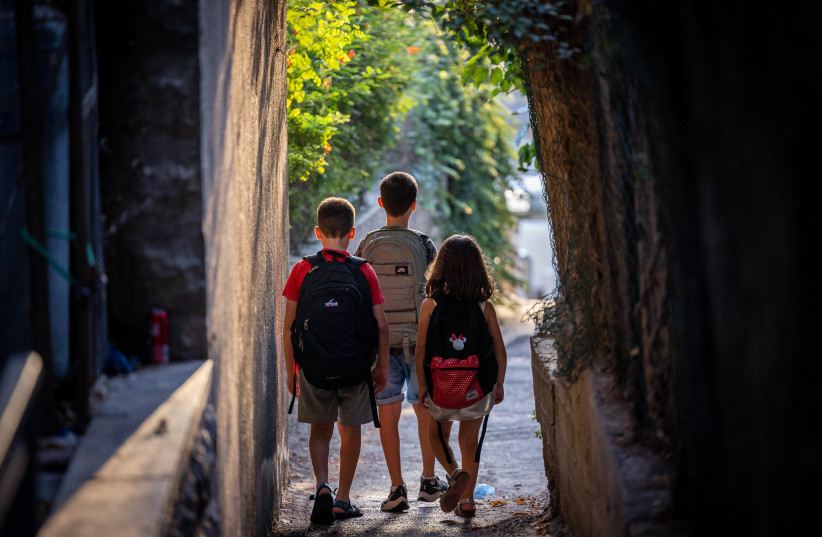It is time for all sectors in Israel & the USA to combat sexual abuse!
Children are in danger. It is time to act now.
Living in a religious community does not afford one or one’s children protection from predators. All sectors of Israeli society need to address and combat sexual abuse.

It’s a truth most people realize: no community is immune to sexual abuse.
Sexual abuse of children happens in the haredi (ultra-Orthodox) community, in the religious-Zionist community, in the secular community and in the Arab community. It happens in wealthy communities and in poor ones; among immigrants and native-born Israelis.It is a plague that, sadly, is universal.
What some may find surprising about a study published this week dealing with sexual abuse in the three streams of education for Jewish youth – the secular public schools, religious-Zionist schools and haredi schools – is that the highest number of students being treated by the country’s social services come from the religious-Zionist and haredi school systems.
Why should this be surprising? Because some have long assumed that children are more protected in a religious environment. However, a study carried out by the religious-Zionist Torah Va’avodah movement based on data from 2020 demonstrates that this assumption is false.
What did the study find?
According to the study, although students from preschool through 12th grade in the country’s religious-Zionist or haredi frameworks account for 45% of the country’s Jewish students, 63% of the victims of sexual abuse being treated by social welfare departments around the country come from those schools. For every 1,000 students in the religious-Zionist stream, 2.39 were treated by the welfare services as a result of sexual abuse, compared with 1.98 in the haredi stream and 1.04 in the secular school system.
The data further shows that while in the non-religious schools 69% of those treated for sexual abuse were girls, in the religious-Zionist schools, boys accounted for 48% of the victims, and for 53% of the victims among the haredim. Interestingly, the figures show that in the religious-Zionist stream, the number remains the same regardless of whether boys and girls are studying separately or in the same classes.
The study also found that there are more reports of sexual abuse in small, homogeneous communities, something true both in the secular and religious worlds. One reason often given for this is that in many cases the abuser is a relative or friend who often feels that in a small, tight-knit community they will be more “protected,” since if their crimes come to light there will be a greater reluctance among the community to turn in someone they know and “one of their own” into the authorities.
As troubling as the data are – and it is troubling indeed – there is one silver lining: people in religious communities are stepping forward and, despite fear and the stigmas attached, are reporting sexual abuse more so than in the past. There is less of a tendency now to deny the problem or to try to sweep it under the rug.
The curtain of silence that for years was draped around this issue in religious communities is being drawn open, and – as is true with so many other issues – shedding light on a problem is an important step toward solving it.
Hard truths
These statistics reveal a couple of hard truths.
The first is that being religious, or living in a religious community, does not afford one or one’s children protection from predators. The data point to the opposite – that religious children are at greater risk.
This realization is important because if parents feel that the community or neighborhood where they live provides their children automatic protection, then they may not feel a need to educate their children about sexuality or warn them of the dangers of sexual predators.
Second, there needs to be more sex education in religious schools. Too often the subject, because it is considered “immodest,” is not discussed.
*זה לא עניין פשוט*This need not be the case and can be dealt with within the framework of Halacha. A healthier, more open attitude toward sex education in religious communities needs to be promoted, because where sexuality is repressed and not discussed, it has a tendency from time to time to find expression in the most unsavory ways.
This study needs to serve as a wake-up call for the religious-Zionist and haredi school systems.
Children are in danger. It is time to act now.
https://www.jpost.com/opinion/article-718977


